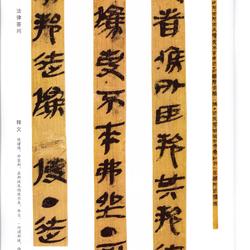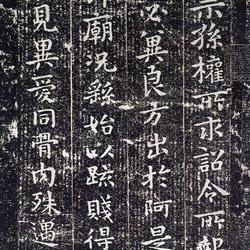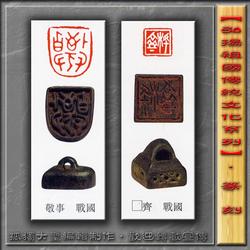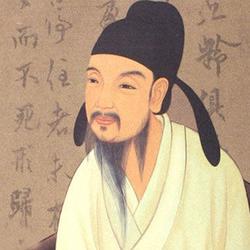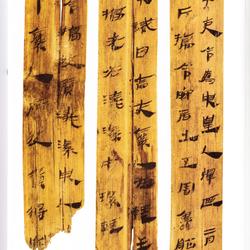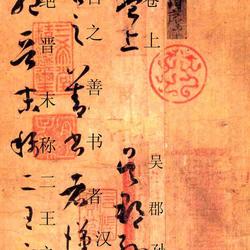【introduce】
Lanting Preface, also known as "Lanting Banquet Collection Preface", "Lanting Collection Preface", "Linhe Preface", "Ye Preface", "Ye Tie". Line calligraphy post. On March 3, the ninth year of Yonghe (AD 353) of Emperor Mu of the Eastern Jin Dynasty, Wang Xizhi, Xie An, Sun Chuo and other 41 people went to Lanting in Shanyin (today's Shaoxing, Zhejiang) to "repair evil spirits". At the meeting, everyone wrote poems. , a manuscript preface written by Wang Xizhi to their poems. The preface describes the beauty of the mountains and rivers around Lanting and the joy of the party, expressing the author's feeling that good times do not last long and life and death are impermanent.
The text of the Dharma calligraphy passed down from generation to generation has a total of 28 lines and 324 words. The composition, structure and writing style are all perfect. It was his proud work when he was thirty-three years old. Later generations commented that "Youjun's font is a change from the ancient method. Its majestic and elegant style comes from nature, so it is regarded as a follower in ancient and modern times." Therefore, calligraphers of all ages have praised "Lanting" as "the best in running script".
In the Tang Dynasty, it was acquired by Emperor Taizong and he was regarded as the representative of Wang Shu. He once ordered Zhao Mo and others to copy several copies and distribute them to close relatives and ministers. Unfortunately, it was used as a burial object by Emperor Taizong of the Tang Dynasty and buried in Zhaoling. From then on, the original work has never been seen in the world. Among the extant Tang Dynasty ink imitations, the "Shenlong Edition" is the best. During the reign of Emperor Taizong of the Tang Dynasty, Feng Chengsu had a gold seal, so it is called "Lanting Shenlong Edition". This edition is a fine copy, with brushwork, ink style, style, and charm all reflected, and is recognized as such. It is considered to be the best copy; among the stone carvings, the "Dingwu version" is preferred.
After Guo Moruo's research, he believed that the second half of the "Lanting Preface" that was passed down was gratuitous and had no similarities with Wang Xizhi's thoughts. The style of the calligraphy was also different from the epitaphs of the Wang family in the Eastern Jin Dynasty that had been unearthed in recent years, and he was suspected to have been forged by the Sui and Tang Dynasties. But there are also those who disagree with it.
"Lanting Preface" expresses the highest state of Wang Xizhi's calligraphy art. The author's magnanimity, phoenix spirit, broadmindedness, and emotion are fully expressed in this work. The ancients said that Wang Xizhi's writing style was like "the breeze comes out of the sleeves and the bright moon enters the arms", which is a wonderful metaphor.
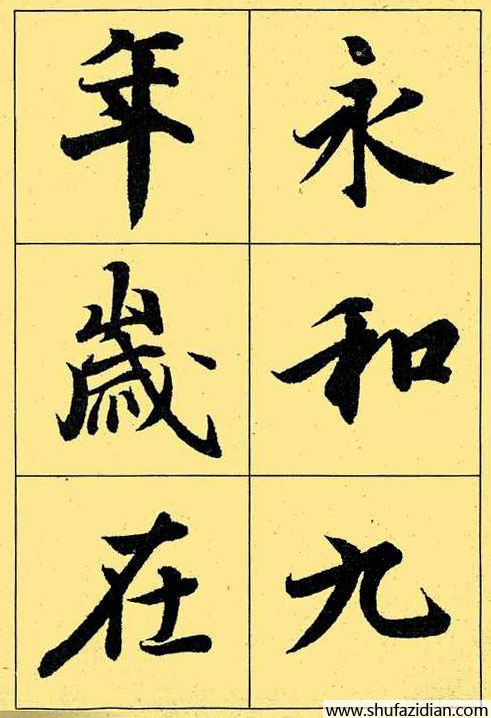
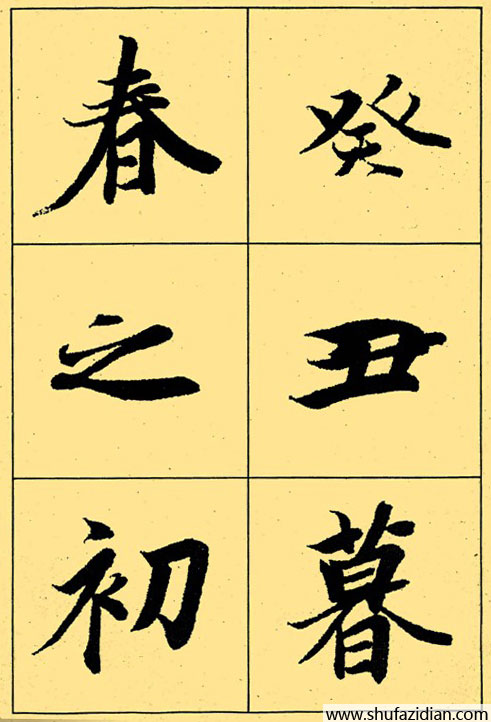
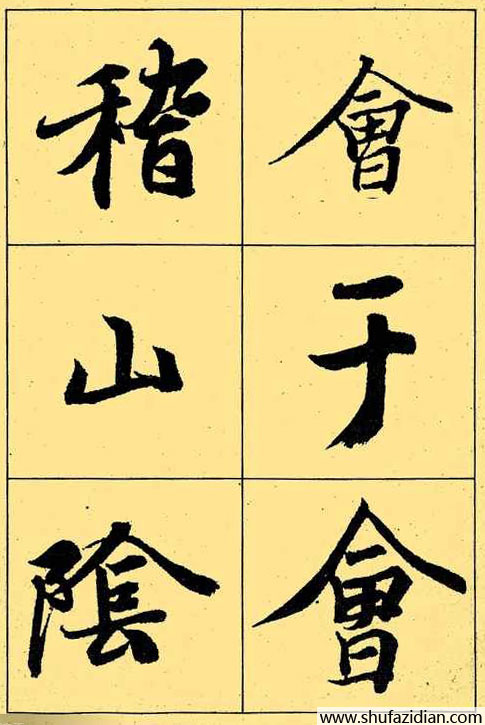
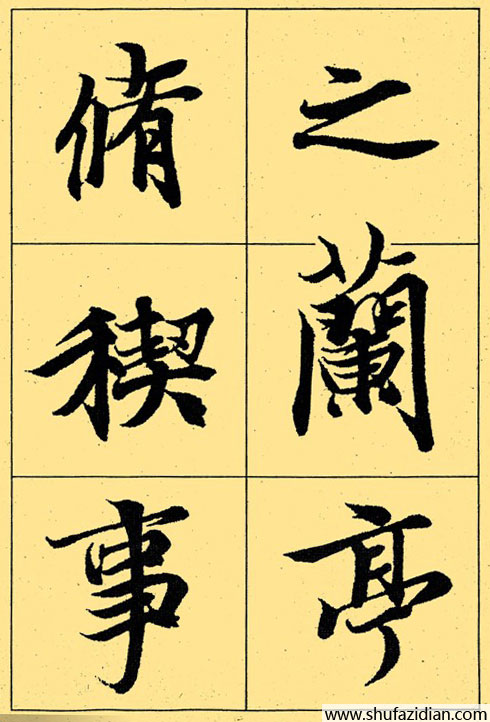
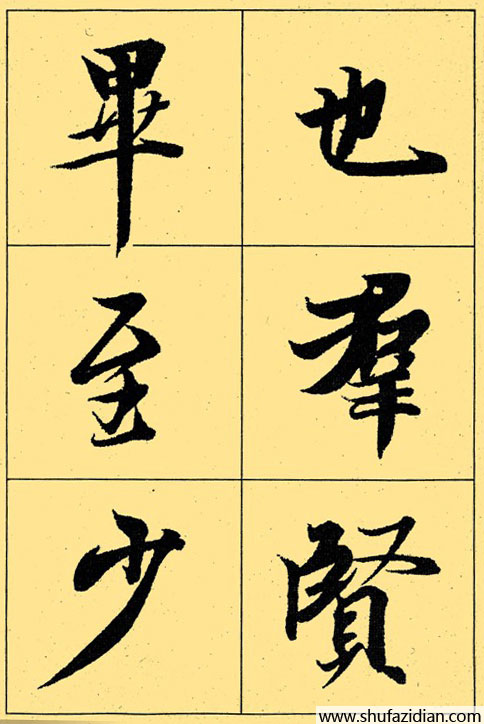
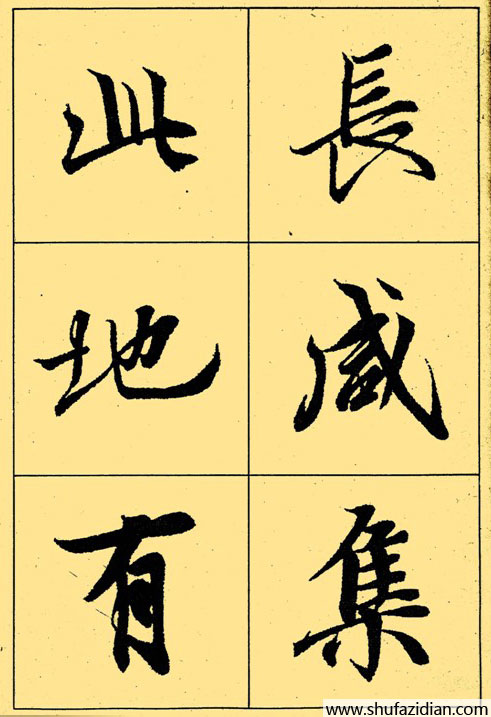
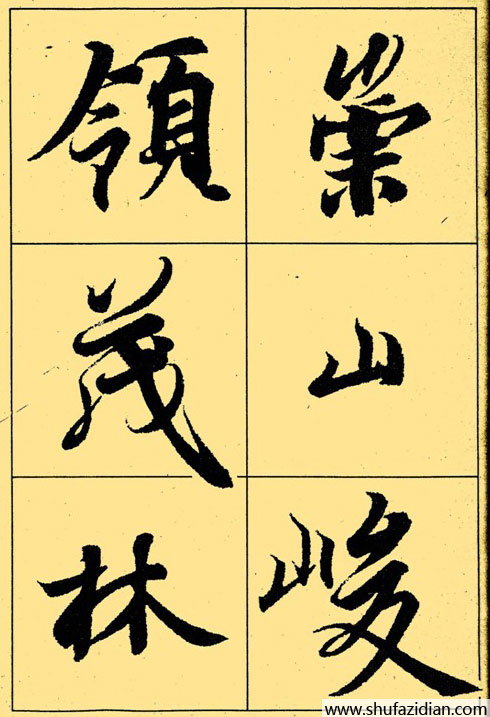
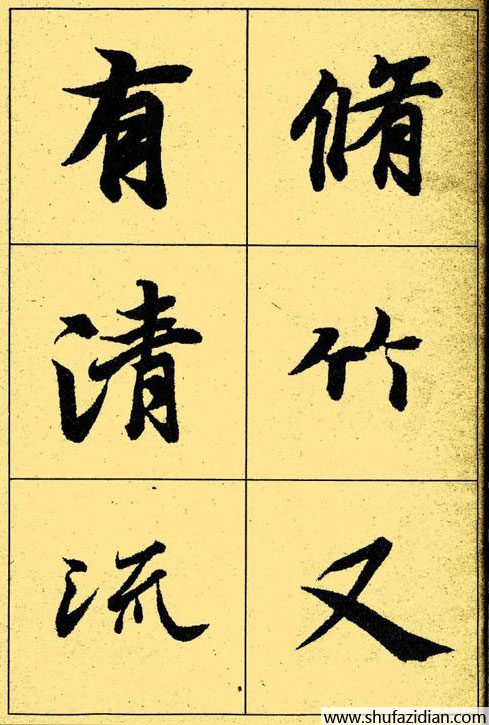
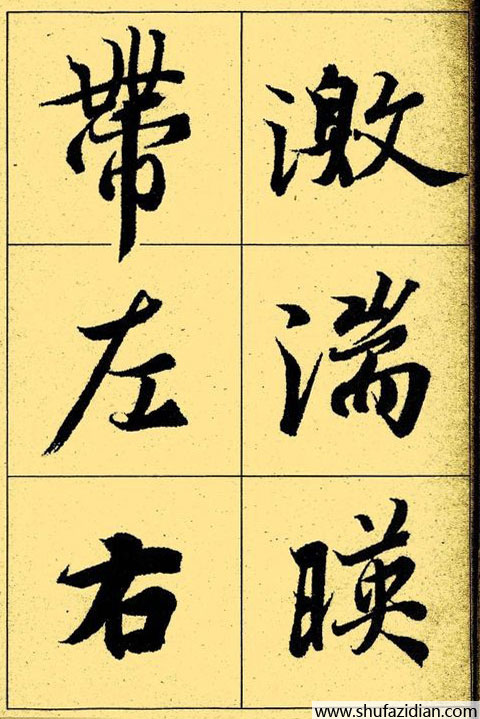
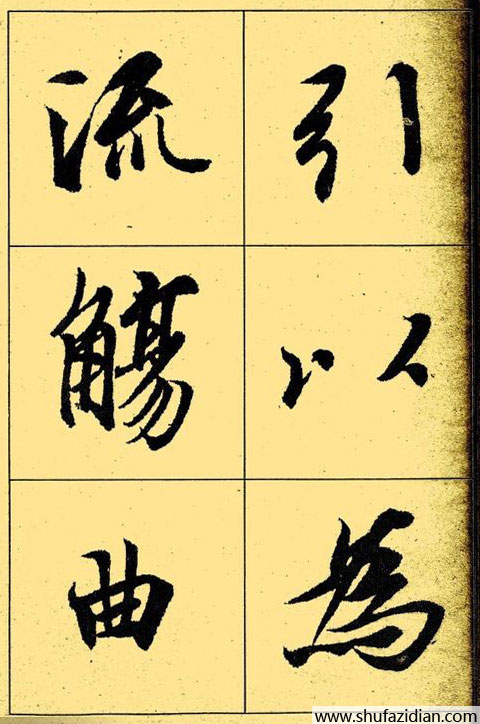
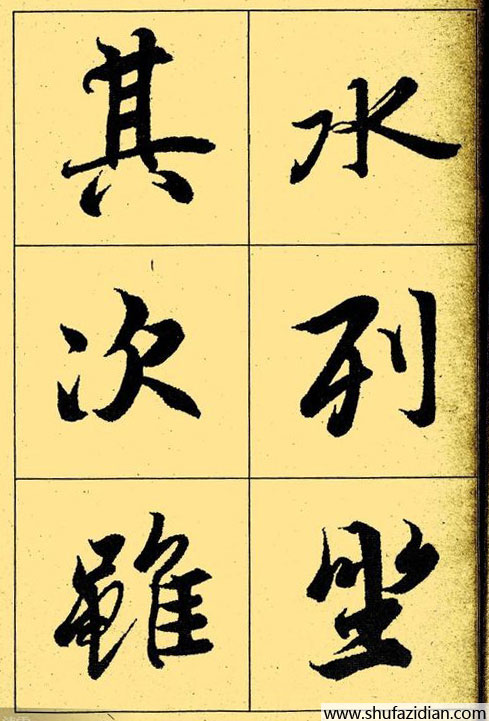
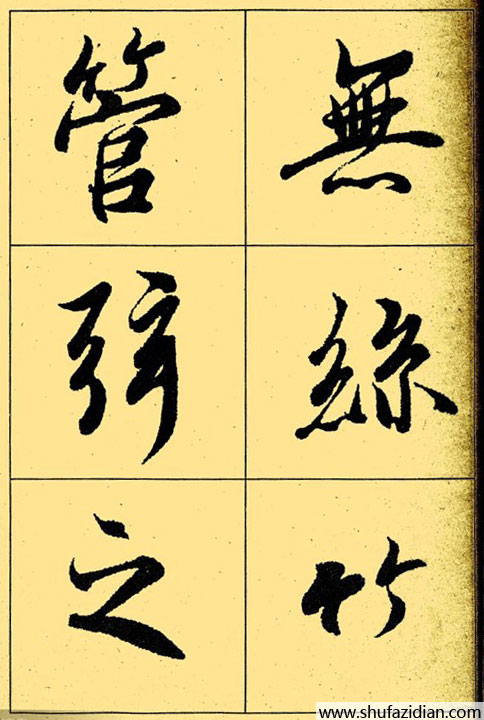
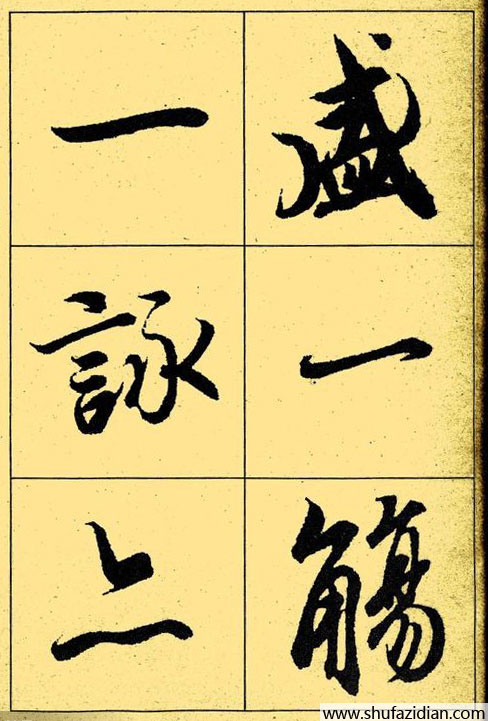
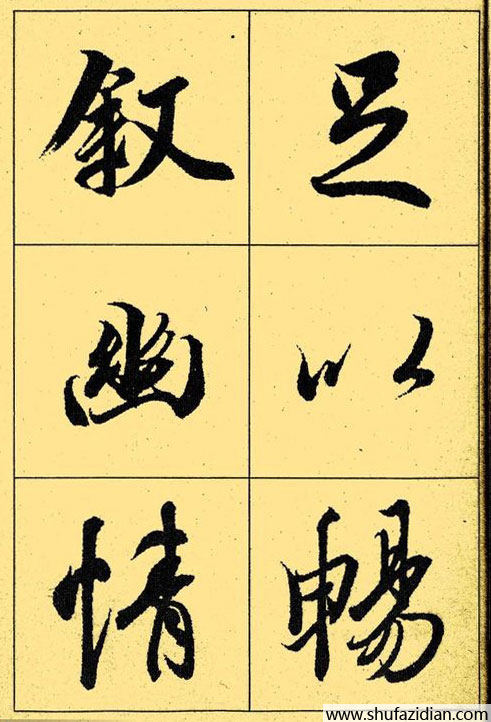
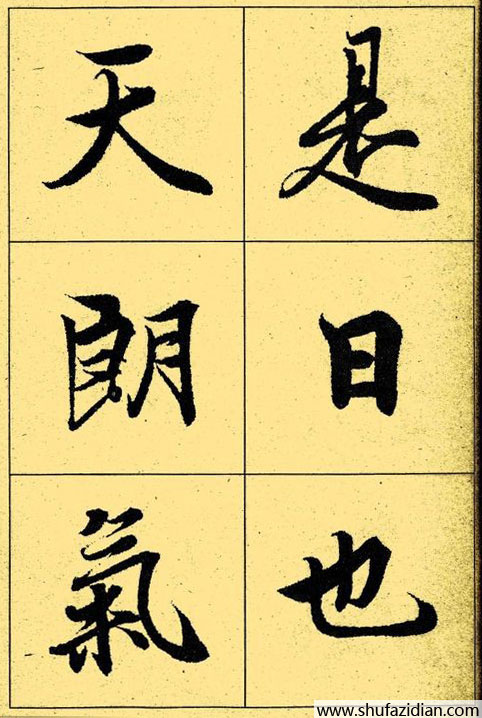
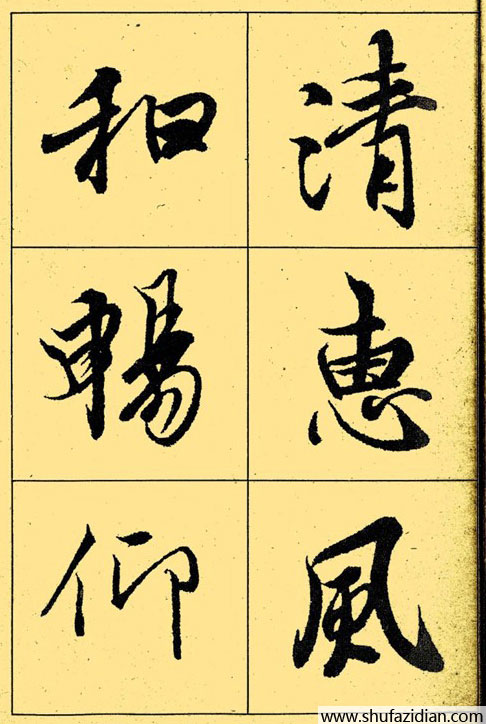
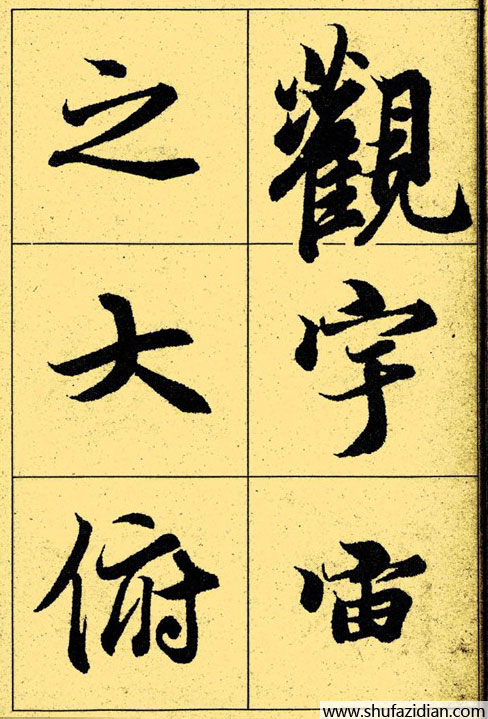
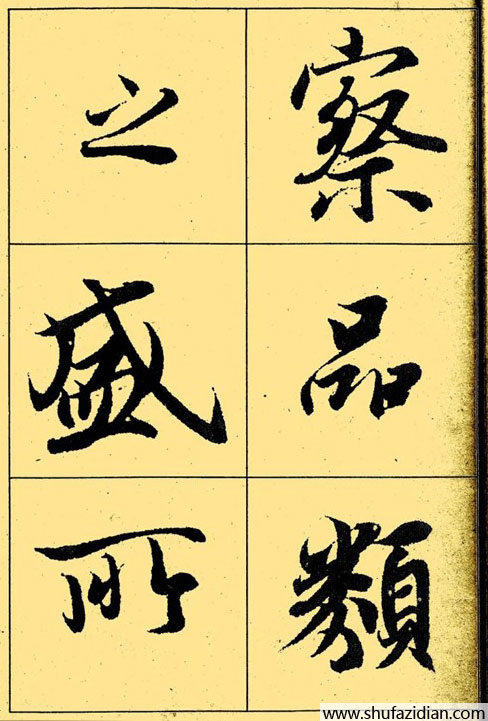
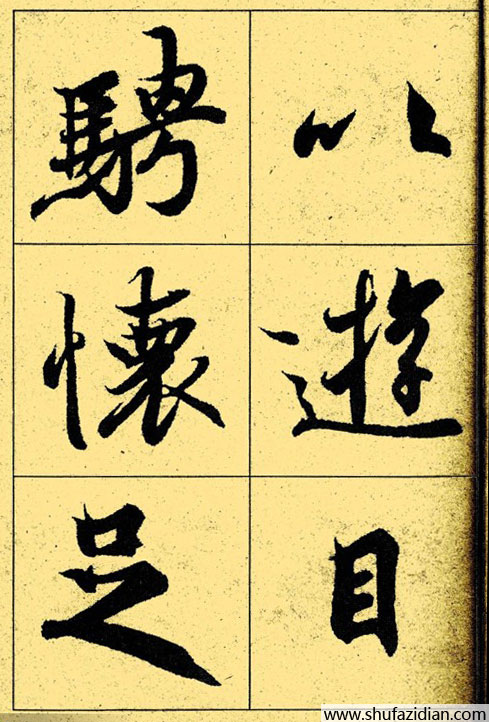
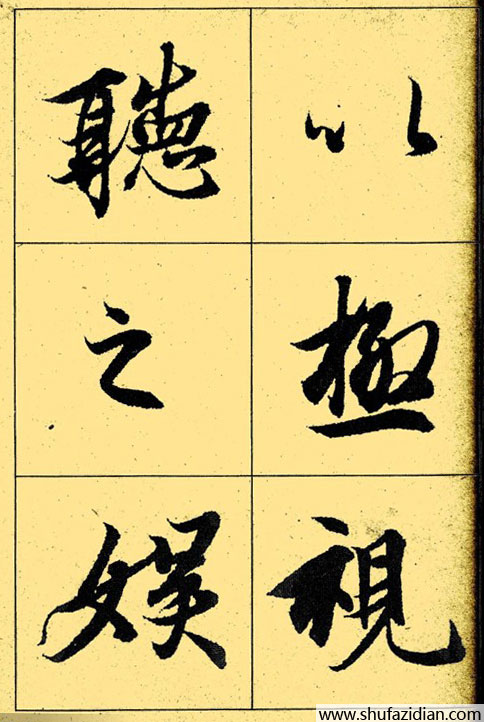
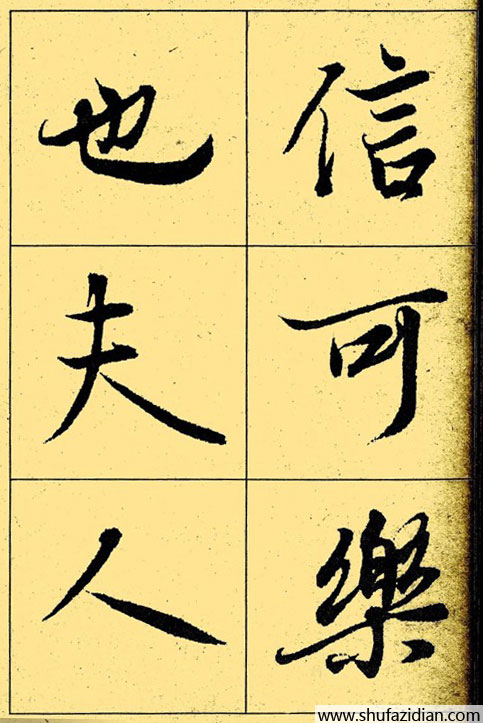
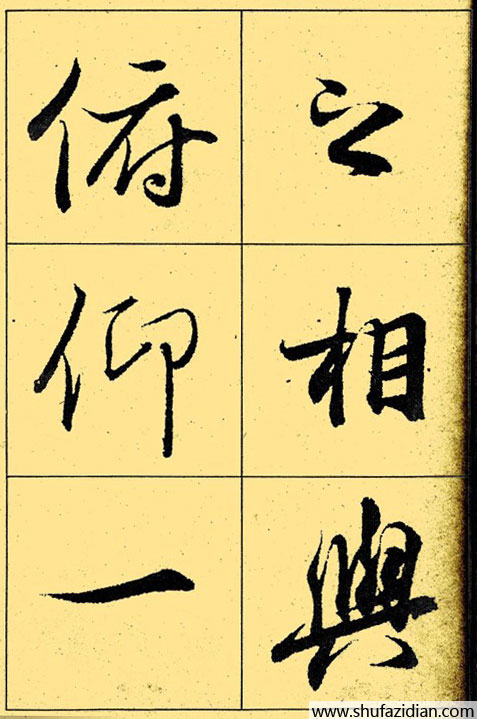
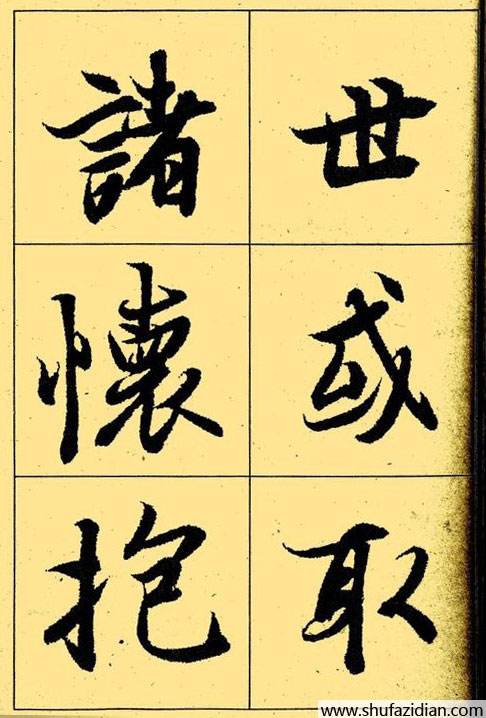
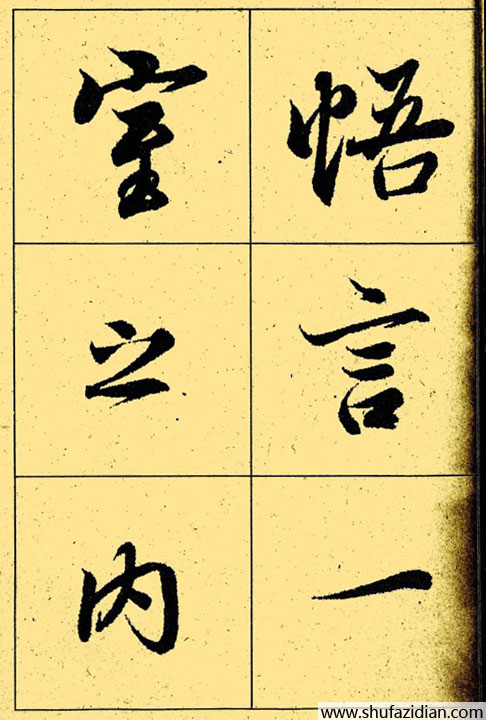
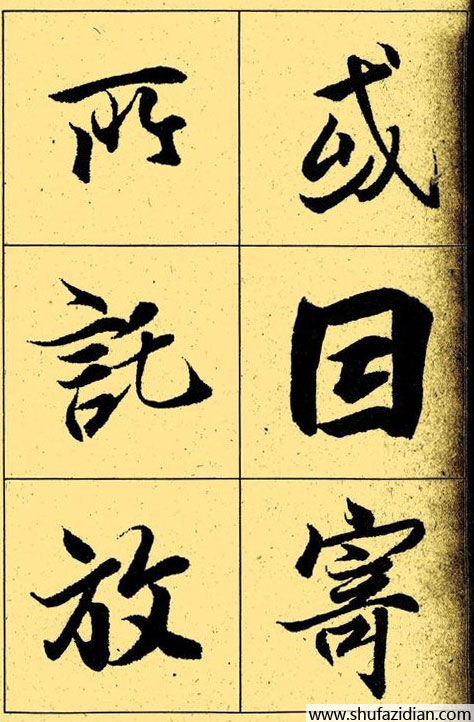
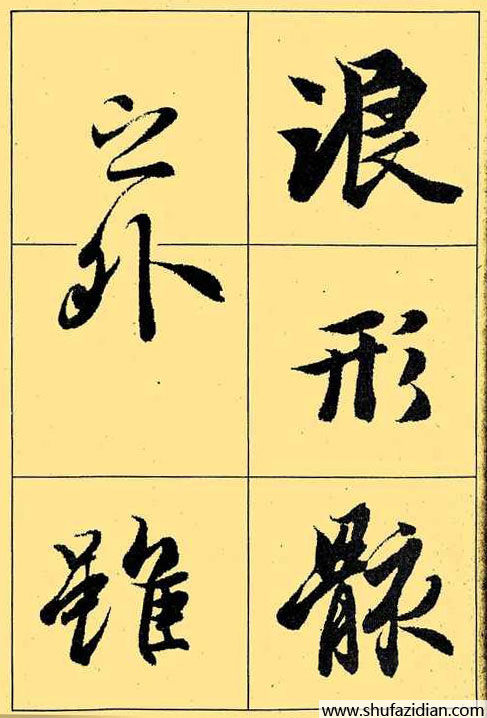
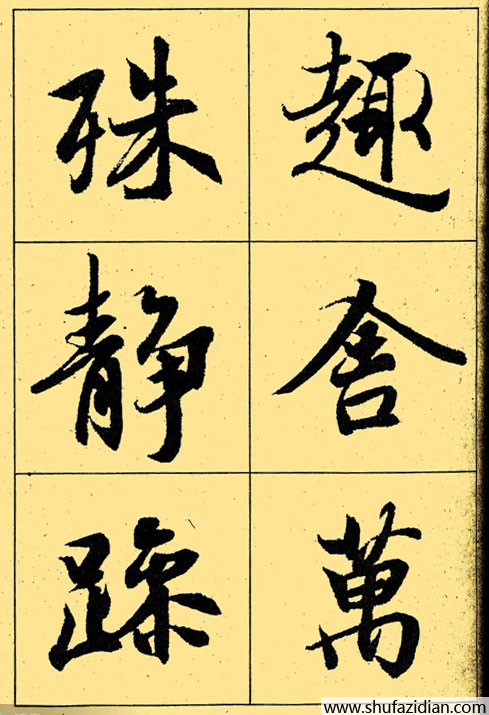
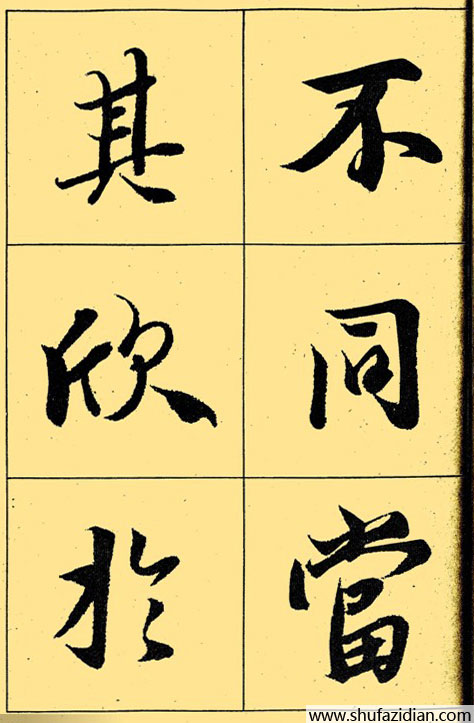
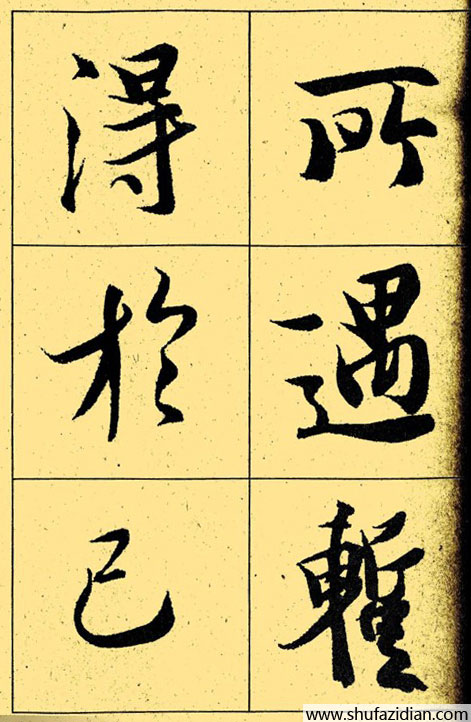
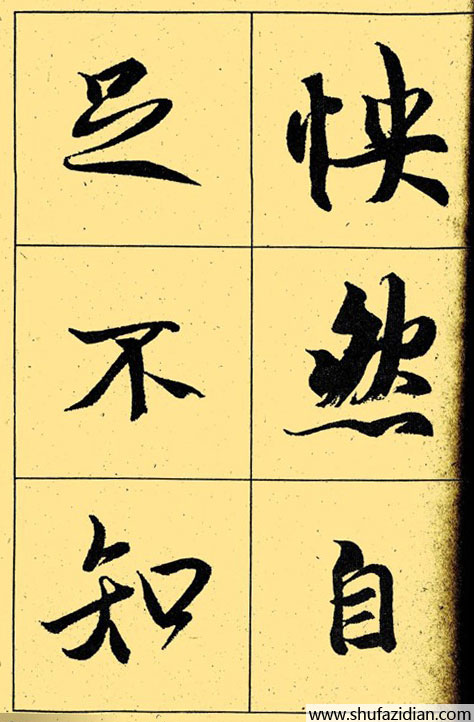
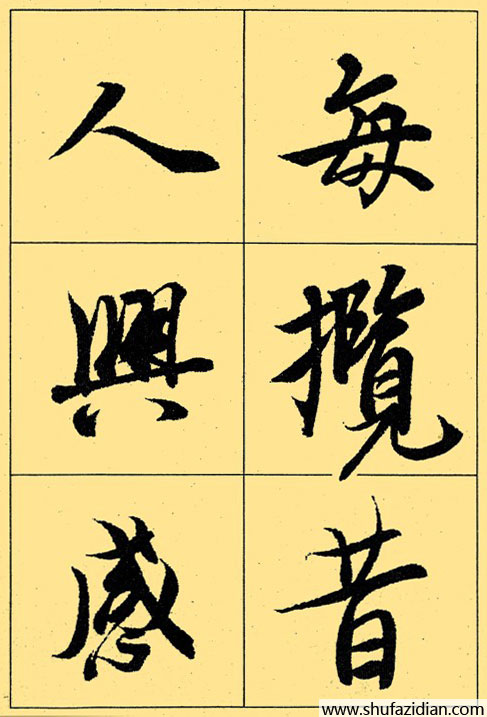
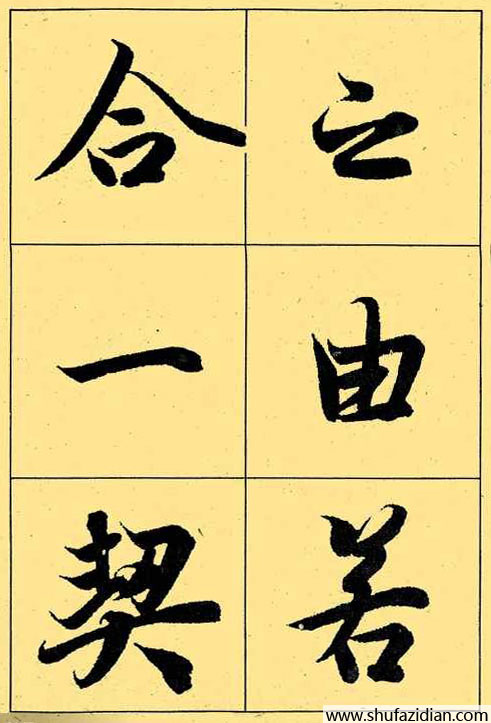
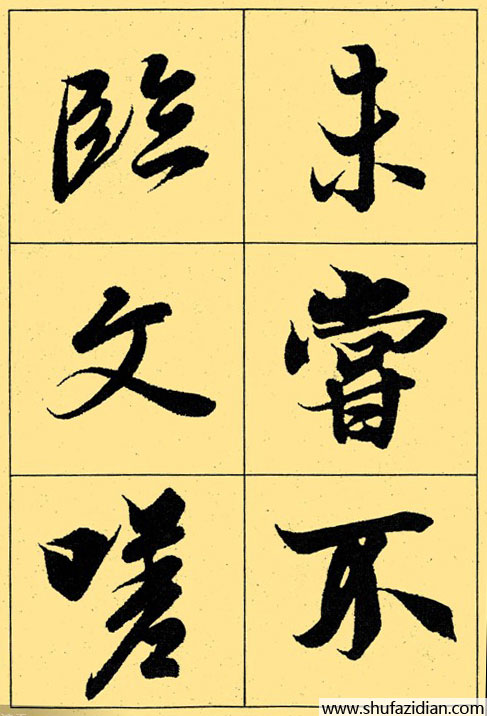
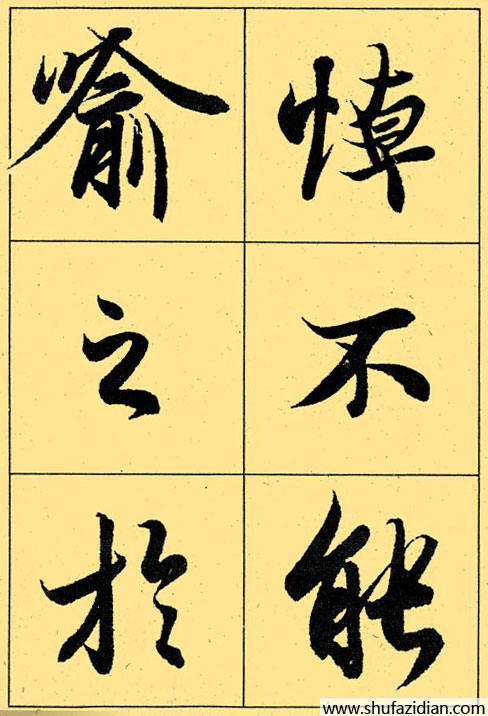
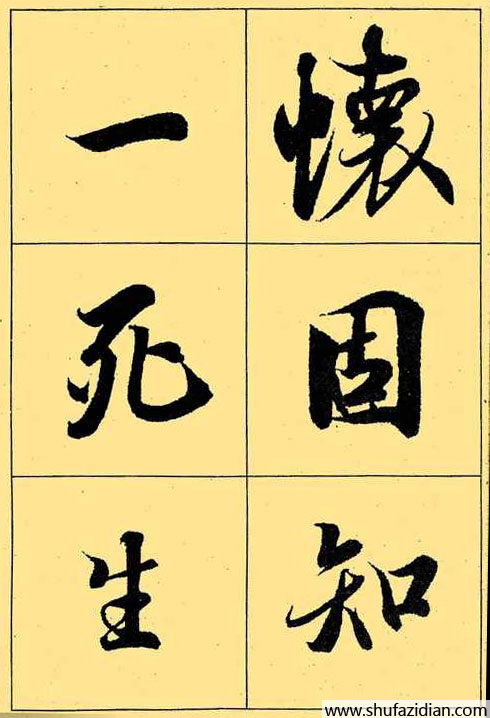
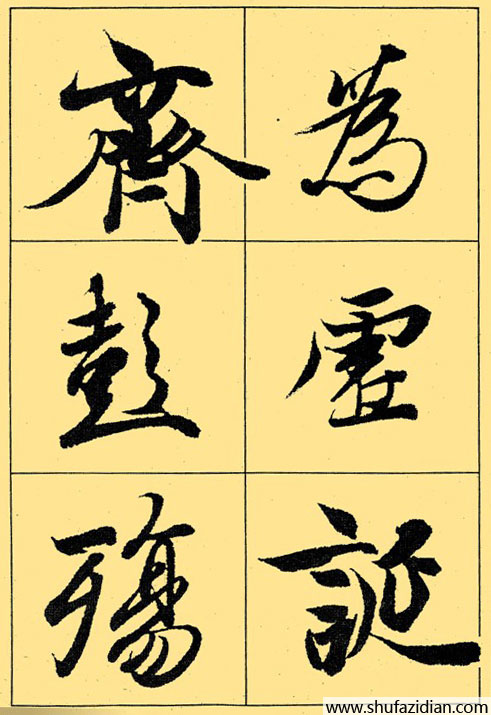
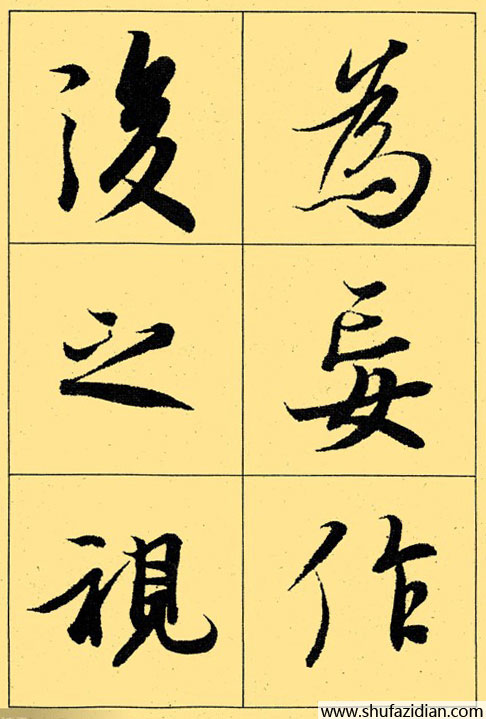
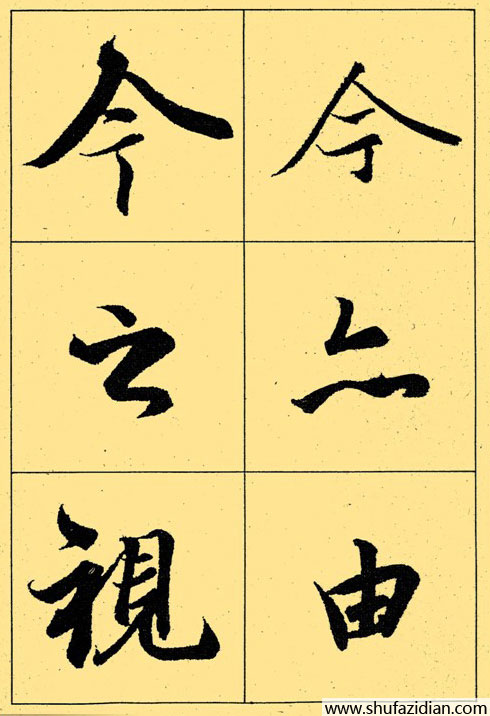
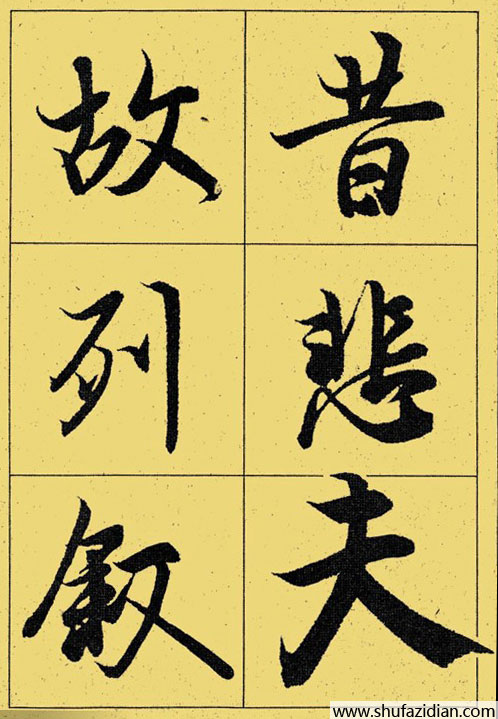
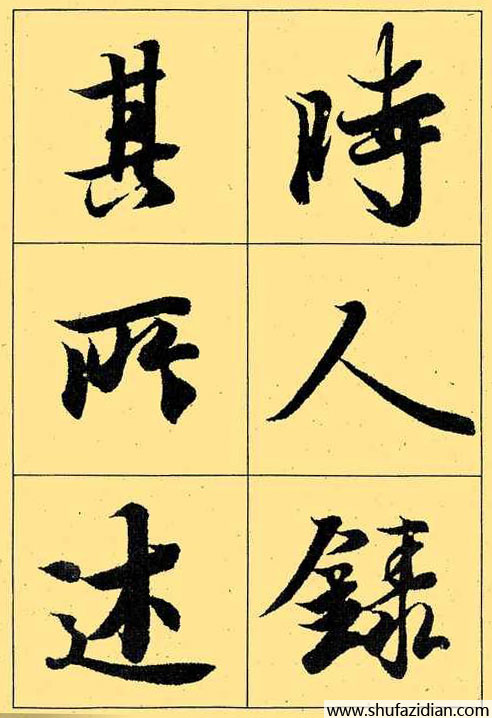
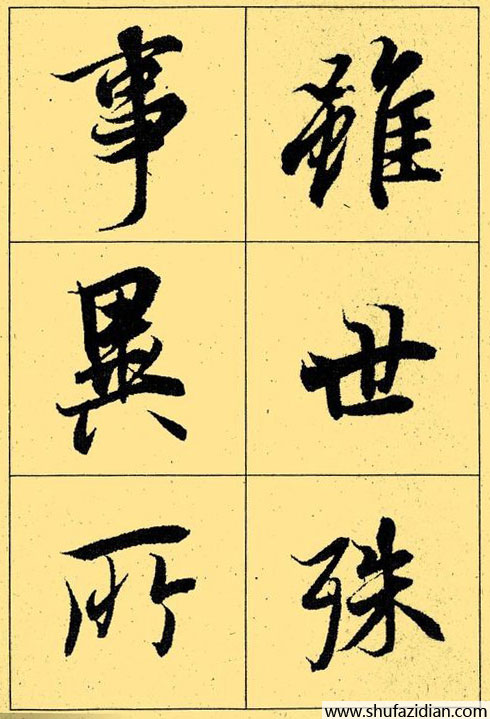
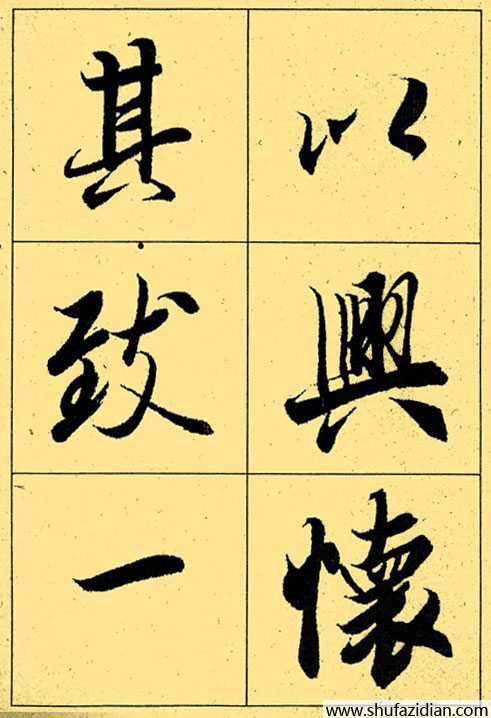
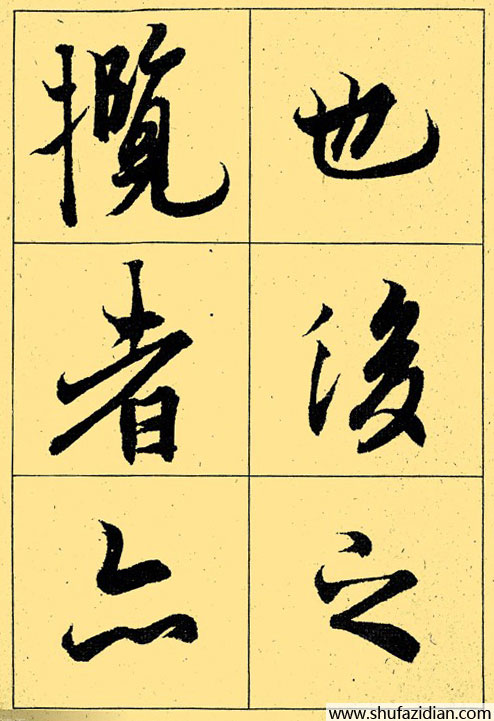
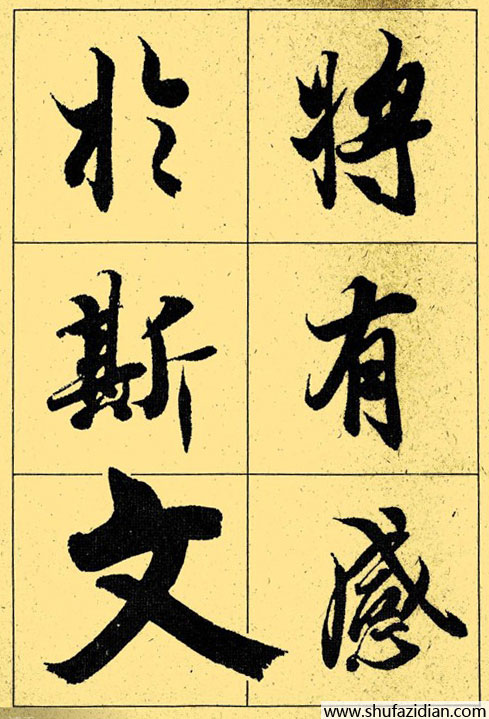
【original】
In the ninth year of Yonghe, when he was in Guichou, at the beginning of late spring, he met at the Orchid Pavilion in Shanyin, Kuaiji, to do bad luck. All the talented people have arrived, and the young and old have gathered together. Here there are lofty mountains, luxuriant forests and bamboos; there are also clear streams and turbulent waves, which are reflected to the left and right, making them look like flowing water. Although it is not as prosperous as silk and bamboo orchestral music, one drink and one chant are enough to express the secret love.
On that day, the sky was clear and the wind was gentle and gentle. I looked up at the vastness of the universe and looked down at the prosperity of categories. Therefore, wandering around and wandering my mind was enough to provide great visual and auditory entertainment. I believe it is a joy. The lady's relationship with her lasts a lifetime, or she takes her into his arms and talks to each other in the same room; Although there are many choices and choices, calmness and impatience are different. When you are happy with what you encounter, you get what you have for the time being, and you are happy and contented, not knowing that old age is coming. When I am tired of what I am doing, my emotions change with the situation, and I am filled with emotion. The admiration for it and the admiration of it have become old traces, but I still cannot help but feel happy about them. The situation will be shortened and changed, and it will eventually end. The ancients said: "Death and life are also big things." Isn't it painful?
Every time I look at the reasons for people's interest in the past, if they are combined into one, I will not fail to express my condolences in writing, which cannot be expressed in my heart. I know that death and rebirth are just illusions, and mourning for Qi Peng is an illusion. The future looks upon the present, just as the present looks upon the past. Sad husband! Therefore, I listed people from that time and recorded what they said. Although things are different in different times, I am interested in them and they are consistent. Those who view it later will also feel the elegance.
【Translation】
In the ninth year of Yonghe, it was Guichou. On the fourth day of late spring in early March, we gathered at Lanting in Shanyin County, Kuaiji County to hold a feast of evil spirits. All the people with high moral character and respect in this place will gather together, old and young alike. Lanting is surrounded by high mountains, luxuriant trees and dense bamboos. There is also a clear and rapid stream, like a green belt, setting off the left and right. The stream is diverted into a meandering water cup. Sitting beside it, even if there is no grand orchestral ensemble, just drinking and writing poems is enough for people to talk freely.
On this day, the sky is bright and clear, and the breeze is blowing. Looking up, you can see the vast universe, bending down, you can inspect many objects, look around, open your mind, and enjoy the joy of seeing, hearing, and hearing. It can really be said to be a day in life. Great pleasure.
People get close to each other and spend their lives in admiration. Some people like to be introspective and content with conversations in a room; some people rely on external things and live a wild and unruly life. Although their internal and external choices are vastly different, and their quiet and active personalities are different, when they encounter gratifying things, feel proud for a while, and feel contented, they will forget about the impending aging. When you get tired of what you have acquired and things change, it will inevitably lead to endless emotions. The joys obtained in the past will soon become relics of history, and people can't help but feel sad for them. What's more, the growth and development of a person's life depends on fate, and it will eventually come down to exhaustion! The ancients said: "Death and life are a big deal." How can this not make people sad!
Whenever I see the sentiments expressed by the predecessors, and the reasons are as consistent as a talisman, it is inevitable to sigh in front of the articles of the predecessors, but I don't understand what is going on. Of course I know that it is absurd to confuse death and life, and it is absurd to equate longevity with premature death. Later generations will look at today's people just as today's people look at their predecessors. This is the sad part of the matter. So I am going to list the names of the attendees and record the psalms they have written. Although times are different and actions are different, the motivations that trigger people's feelings are undoubtedly the same. When future generations read these poems, I am afraid they will have the same emotion.
【author】
Wang Xizhi (about 321-379), courtesy name Yishao, was born in Linyi, Langya, Eastern Jin Dynasty. His family was one of the few wealthy noble families in the Jin Dynasty. His grandfather Wang Zheng was Shang Shulang. His father, Wang Kuang, was the governor of Huainan. He once proposed that the Jin Dynasty cross the river and establish the Eastern Jin Dynasty on the left side of the river. Wang Xizhi's uncle Wang Dao was even more famous and was the prime minister of the Eastern Jin Dynasty. His other uncle, Wang Dun, was the military commander of the Eastern Jin Dynasty. The Langya Wang family was extremely powerful and prosperous in the Eastern Jin Dynasty. Because of Wang Xizhi's background, he became a secretary as soon as he became an official, then joined the army for Yu Liang, then moved to Ningyuan general, Jiangzhou governor, and finally became the right army general and Kuaiji internal historian. So people also called him "Wang Youjun".
Wang Xizhi was frank and informal, and he had no desire for honor and profit since he was a child. "Shishuo Xinyu" contains Wang Xizhi's beautiful talk about "confidence in the east bed". Xi Jian, another major gentry in the Jin Dynasty , wanted to marry into the Wang family, so he sent his disciples to the Wang family to choose a son-in-law. Director Wang asked people to go to the east chamber to observe his nephews one by one. After the disciple returned, he reported to Xi Jian: "The Wang family's young men are all good." When they heard that the visitor was sent by the Xi family to choose a son-in-law, they all looked reserved. There was only one person eating openly on the east bed, as if he didn't know this happened. Xi Jian heard this and said, "This is the perfect son-in-law I'm looking for." Later, when he inquired about it, he found out that the man who was frank was Wang Xizhi, so he married his daughter to him.
Judging from this anecdote, Wang Xizhi has had an open-minded character since he was a child and rarely worries about trivial matters. Perhaps this is one of the reasons why his calligraphy is vigorous and open, with a free and unrestrained attitude. Because of this allusion, later people used "Donggang Tanfu" and "Donggang" as good names for their son-in-law, or they called other people's sons-in-law "Lingtan".
Because of Wang Xizhi's rare reputation, the officials in the imperial court loved his talents, and he was repeatedly recruited to serve as a minister, minister of history, etc., but he refused to refuse. He doesn't like being an official and prefers to be quiet. But when he had no choice but to take up an official position, he would never remain in office. During his tenure, he had important and practical political opinions on Prime Minister Xie An and Yin Hao who participated in government affairs . He also opened a warehouse to provide relief to the hungry. All these show that he does not seek glory and wealth but is an upright character.
Wang Xizhi loved calligraphy since he was a child. When he was young, he learned calligraphy from his aunt, Mrs. Wei, a famous female calligrapher. After crossing the river, he studied the calligraphy of senior calligraphy masters such as Li Si, Cao Xi, Zhang Zhi, Zhang Chang, Cai Yong, Zhong Yao and Liang Hu. This makes his calligraphy integrate the strengths of various calligraphy schools and become a style of its own. In addition, there are many people in his family who are good at calligraphy. His fathers, Wang Dao, Wang Kuang, Wang Yi, etc. are all masters. This is also a very significant help to his calligraphy learning. Wang Xizhi has profound attainments in real calligraphy, cursive calligraphy, and all kinds of calligraphy. His real calligraphy is clever and dense, opening up a new realm; his grass is long, thick and slender; his running script is charming and vigorous. People call his calligraphy "floating like floating clouds, as powerful as a frightening dragon"; " dragon leaping over the Tianmen, tiger lying in the Phoenix Pavilion".
Wang Xizhi has many calligraphy engravings, such as "Le Yan Lun", "Huang Ting Jing", "Dongfang Shuo Hua Zan" and other regular script works, which occupy an important position in the history of ancient Chinese calligraphy. His cursive calligraphy handed down from generation to generation includes more than ten kinds of cursive calligraphy, such as "Hanqie Tie", "Auntie's Tie" and "Chu Yue Tie". Although these calligraphy treasures are copies of Tang Dynasty double outlines, they are also rare treasures. His running script "Kuaixue Shiqing Tie" has only 24 characters, and was listed as the first among "Three Xi Tie" by Emperor Qianlong of the Qing Dynasty.
"Lanting Preface" is Wang Xizhi's most famous masterpiece. From a literary point of view, it has beautiful words and broad-minded emotions. It is a great article that will last forever. From the perspective of calligraphy, it is known as the crown of Dharma stickers and has been carefully studied by famous artists of all generations.
Wang Xizhi was also good at painting and was one of the earliest calligraphers in history who was also good at painting. His wife Xi and his seven sons are all good at calligraphy, and they are a world-famous calligraphy family, which is also rare in ancient Chinese history. In particular, his youngest son Wang Xianzhi inherited his father's learning, and further created a world of originality. His calligraphy and painting were beautiful and exquisite, and he was as famous as his father and was known as the "Two Kings".
Wang Xizhi's running script is like flowing clouds and flowing water, among which Lantingxu is the best. On March 3, the ninth year of Yonghe reign of Emperor Mu of Jin Dynasty, Youjun officials visited Shanyin and gathered with Sun Tongcheng, Xie An and other 41 people at Lanting in Shanyin, Kuaiji. The ritual of cultivating the body. While drinking and composing poems, he took advantage of the excitement and wrote a preface with a specially selected rat whisker pen and silkworm cocoon paper to record the grand event. are a total of 324 words, of which 20 "Zhi" names have different postures. and beauty. The writing of this post is like divine help, and it has the reputation of "beautiful, vigorous and unrivaled".
Youjun passed it on to his descendants until the seventh generation, Sun Zhiyong, and left it to Benzai. Later, he was "cheated" into the inner court by Emperor Taizong of the Tang Dynasty. Emperor Taizong was so fascinated by his calligraphy that he ordered the calligrapher Zhao Mo and others to make several copies. The authentic works were given to the king and ministers and were buried with him in Zhaoling. During the reign of Empress Wu, Yunhuan excavated it, and the original work was recovered and kept in Xuanzong's inner palace. The carved stone was placed in the Academy of Scholars and was called "Dingwulan Xu". It died after the Song and Jin Dynasties. However, this version is different from the ink version handed down today, and it is difficult to determine what it originally looked like.

